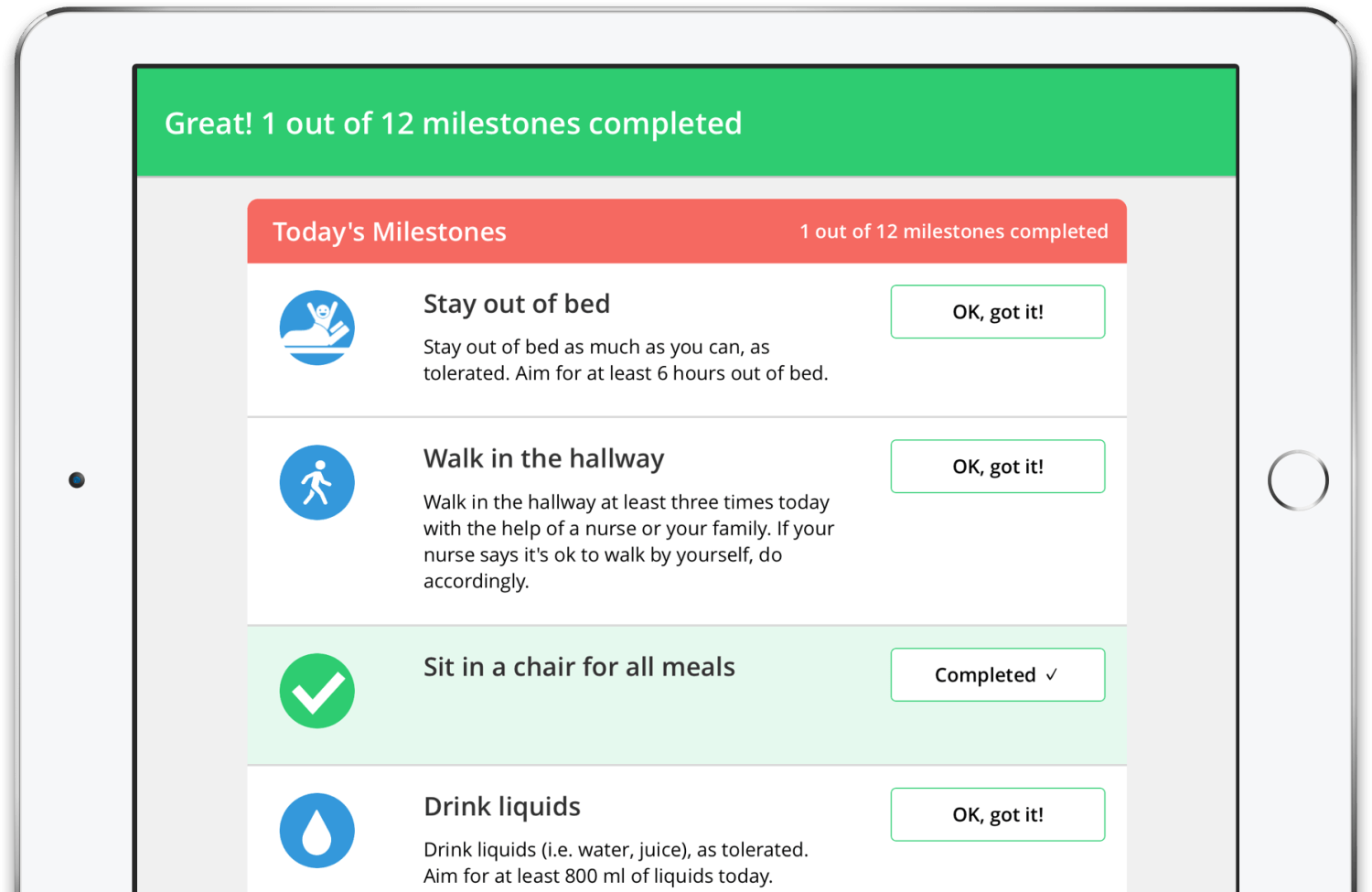Montreal-based McGill University Health Centre’s (MUHC) Steinberg-Bernstein Centre for Minimally Invasive Surgery has partnered with SeamlessMD, a company which provides a cloud-based patient engagement solution for surgery, to perform the first-ever study of a patient tablet app for Enhanced Recovery After Surgery (ERAS). Funded by the Society of American Gastrointestinal and Endoscopic Surgeons (SAGES), the study will determine whether a patient tablet app can improve patient adherence to ERAS care processes, reduce manual labour needed for data auditing and improve patient outcomes.
Pilot Study Details
The first phase of the study will be a single group feasibility pilot. Each patient will receive a tablet loaded with the application at the bedside in the hospital. The custom application has been designed to educate patients about each day’s ERAS milestones and track their adherence. The application links education, recovery planning, and daily self-assessment to a plan of care. By using the application, patients will be self-auditing their adherence to the ERAS protocol, and this data will be available in real-time to the clinical team. After, the second phase of the study will involve a randomized control trial.
Enhanced Recovery After Surgery (ERAS) programs are a patient-centered approach to integrate evidence-based interventions into a coordinated, multidisciplinary care plan encompassing the entire perioperative pathway. A growing body of research has shown ERAS programs to significantly reduce hospital length of stay and patient morbidity for major surgery. However, it can be costly to hire a person to manually audit patient adherence to ERAS protocols. Instead, specially designed ERAS modules can educate patients on their daily recovery milestones and uses checklists to engage patients to achieve their goals.
The MUHC’s Steinberg-Bernstein Centre for Minimally Invasive Surgery first implemented an ERAS program for colorectal surgery in 2006, as well as developing programs in thoracic, urologic, orthopedic and hepatobiliary surgery through a dedicated Surgical Recovery team.

